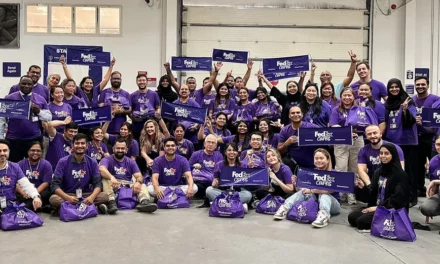
Refinitiv report finds global companies to ramp-up innovation as 72% fall prey to financial crime

Refinitiv, one of the world’s largest providers of financial markets data and infrastructure, has published its second annual financial crime report today. Innovation and the fight against financial crime: How data and technology can turn the tide highlights that almost three-quarters (72%) of organisations have been victims of financial crime over the past 12 months with a lax approach to due diligence checks when onboarding new customers, suppliers and partners cited as creating an environment in which criminal activity can thrive. Across the Middle East, 73% are aware of the incidence of such crimes, spiking to 85% in KSA.
In its 2018 report, Refinitiv outlined that $1.45 trillion of aggregate turnover is lost as a result of financial crime.[i]This year’s report shows that the cost could indeed be much greater.
Gaps in formal compliance persist – globally, over half (51%) of external relationships did not have an initial formal due diligence check at the onboarding stage and this situation was echoed by the same percentage of respondents across the Middle East.
An average of 4% of global turnover is spent on customer and third-party due diligence checks, rising to 5% in the UAE. According to the report, 100% in KSA and 99% in the UAE believe that technology can significantly help with financial crime prevention. About 61% of respondents in the UAE and 88% in KSA struggle to harness technological advancements, while 52% in KSA are prioritizing automation and digitization for investment.
About 85% of respondents in MENA, rising to 92% in KSA, believe humans are a necessary asset to source trusted data and train algorithms. More than 95% in KSA (the highest in the region) consider that the benefits outweigh the risks when sharing information and collaborating against financial crime.
A significant majority (78%) across the region are struggling to harness technological advancements and a lack of digitization is evident, which may be stalling progress. Across the region just 53% of the data and legal documentation actually obtained to carry out due diligence is in a digitized format.
Phil Cotter, Managing Director of the Risk business at Refinitiv, said the results showed that businesses need to do more to invest in technology to address the problem.
“It is clear from the results of this report that businesses exposed to financial crime threats need to maximize their use of technology and future collaboration could prove key to realising the potential of innovation, particularly between tech companies, governments and financial institutions.
“Significant advancements in technology, facilitated by innovations such as AI, ML and cloud computing, are already under way. These technologies are enabling intelligence to be gathered from vast and often disparate data sets which together with rapid advances in data science, are transforming the approach to compliance, streamlining processes such as Know Your Customer (KYC) and helping to uncover previously hidden patterns and networks of potential financial crime activity.”
In 2018, Refinitiv partnered with the World Economic Forum and Europol to form a global Coalition to Fight Financial Crime. The Coalition is working with law enforcement agencies, advocacy groups, and NGOs to address the societal costs and risks that financial crime poses to the integrity of the global financial system.































